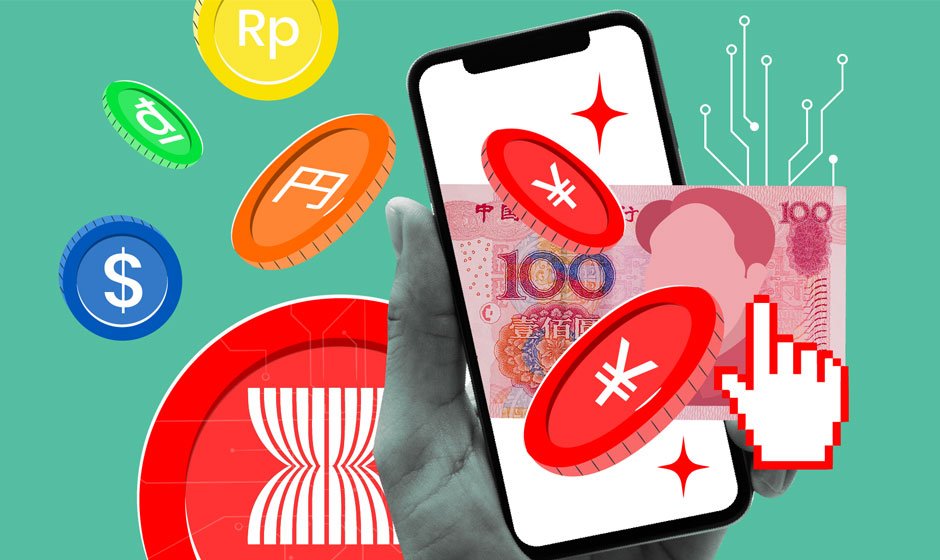Digital Yuan and Public Spending: A Future in Procurement?

Imagine a future where government spending is transparent, efficient, and fast – this vision could soon come true with China’s Digital Yuan in public sector transactions. This article investigates how this digital currency could transform procurement and contracting processes within government, covering its potential advantages and any obstacles it might present. Investment education firms facilitate educational exchanges that explore the potential of digital yuan in transforming government transactions and contracts.
Government Procurement and Contracting Processes Explained
Government procurement refers to all activities and methods public sector entities use to acquire goods, services, and infrastructure for use by their constituents. As this involves spending public funds, procurement requires scrutiny to ensure fairness, efficiency, and transparency in spending them responsibly. Typically, the process starts with a needs assessment followed by creating detailed specifications before hosting an open tender for bids from potential suppliers.
This method includes various steps: advertising the tender, receiving bids, and evaluating proposals using predefined criteria before awarding the contract to the most suitable bidder. Each stage must adhere to strict regulations to prevent bias or corruption and ensure public funds are used efficiently.
However, despite these regulations, the system still presents challenges. It often needs more bureaucracy, slow decision-making, and transparency issues, which lead to excessive spending or misallocation of resources. Such challenges highlight the need to develop more streamlined and secure systems that may benefit from adopting technologies like Digital Yuan.
Potential Advantages of Implementing Digital Yuan in Governmental Transactions
Integrating the Digital Yuan into government transactions could revolutionize public sector efficiency and transparency. One of the primary advantages is the speed of transactions. Digital currencies facilitate immediate payments without the delays typical of traditional banking processes. This can accelerate project timelines and reduce the downtime between procurement stages.
Additionally, the Digital Yuan might improve fund traceability. Every transaction would be documented on a blockchain, resulting in a transparent and unchangeable audit trail. With this degree of traceability, the possibility of corruption and fraud might be greatly decreased because every Yuan spent will be visible and accounted for.
Additionally, the technology may improve inclusivity and accessibility, facilitating small and medium-sized businesses’ participation in government bids. The Digital Yuan has the potential to level the playing field for smaller firms, which typically encounter obstacles to entrance in the bidding process, by streamlining the payment process and lowering transaction costs.
Obstacles and Things to Think About
Using the Digital Yuan in official transactions has many potential advantages but also considerable drawbacks. From a legal standpoint, it is challenging to incorporate a new digital currency into the current financial and regulatory system. It will be necessary to amend or rewrite laws and regulations to account for and utilize digital currency’s complexities adequately.
From a technological standpoint, the transition calls for a robust infrastructure that can safely and reliably handle massive digital transactions. Because government transactions are sensitive, this infrastructure must be kept secure. Additionally, there is the human element to consider. Teaching suppliers and government officials how to handle digital currency takes time and money.
It’s also important to consider cultural resistance when changing. When a system is switched from a traditional one to a technologically advanced one, it has to be changed. People accustomed to the old ways may be skeptical and reluctant to change long-standing habits and processes.
Global Implications and Future Prospects
Adopting the Digital Yuan for government procurement and contracts could set a precedent with global implications. If successfully implemented, it could encourage other nations to explore digital currencies for public administration, potentially leading to a new standard in how government transactions are conducted worldwide.
This move could also impact global economic dynamics. The Digital Yuan could become a key instrument in international trade, especially among Belt and Road Initiative countries, thereby increasing China’s influence in global trade policies. Moreover, as more countries consider issuing their digital currencies, we could see shifts in how international trade and currency exchange are managed.
The prospects of such a technological shift are vast. They span from increased efficiency and reduced corruption to more significant geopolitical shifts in power and economic alignments. However, these changes also necessitate careful consideration of the ethical, legal, and social implications of digital currency adoption on a large scale.
Conclusion
As we delve into the possibilities that the Digital Yuan presents for government transactions, it becomes clear that its integration could reshape national and global economic landscapes. With its promise of enhanced efficiency and transparency, the future of public administration might be on the brink of a digital revolution.



